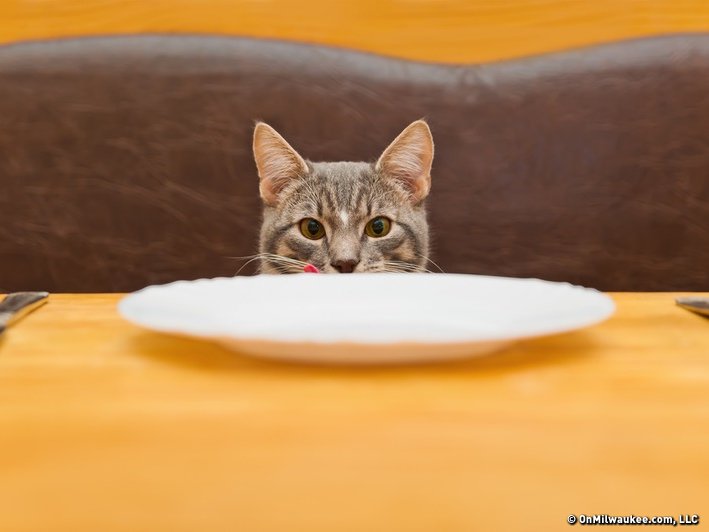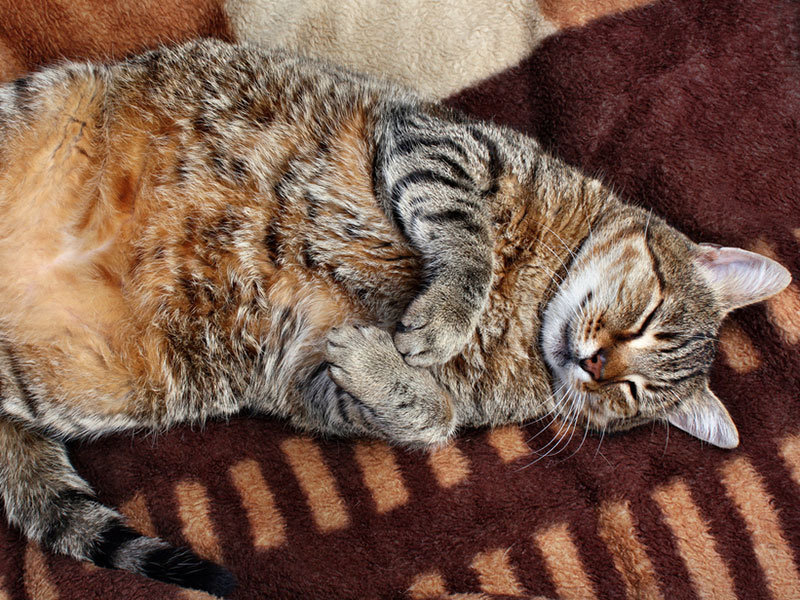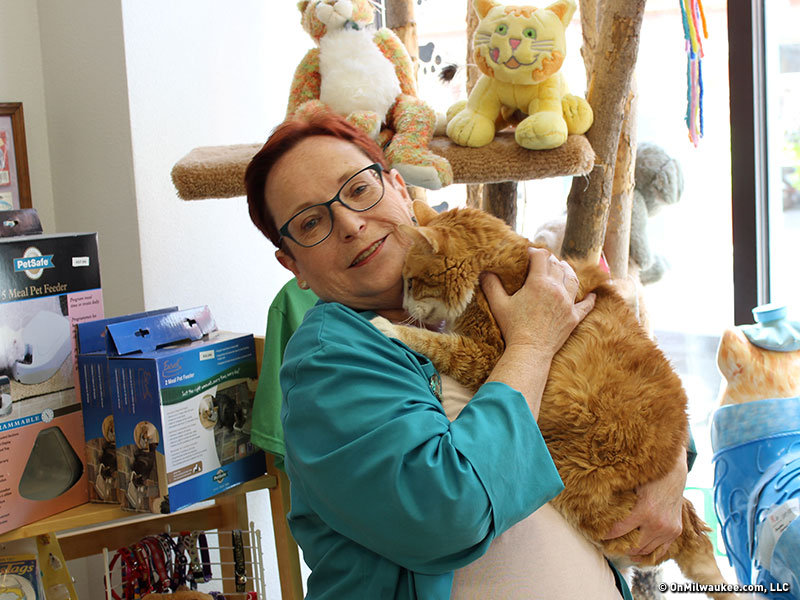Welcome to OnMeowaukee Cat Week, a meowsome bunch of articles, photos, videos and an Instagram contest celebrating all aspects of Milwaukee cats. Sponsored by Bark N' Scratch Outpost, these seven days are dedicated to those creatures with nine lives who make our lives more paw-sitive.
Cats can be seriously picky eaters. As a result, we may assume that if a cat is willing to eat a food, it’s good for them.
But the fact that your cat snubs his nose at a piece of expired meat doesn't necessarily mean he or she has impeccable judgment in terms of diet. In fact, you might be surprised by some of the common foods your cats should never eat.
1. Grapes
They look like the perfect size for a treat. And cats are often intrigued by the roly-poly fruits, which are known to fall from counters and high chairs and get batted about the house. But, grapes are a bad idea for cats (raisins, their wrinkly cousins, are bad news, too). Experts aren’t sure exactly why, but grapes can not only make a cat very sick, persistent doses will cause kidney failure.
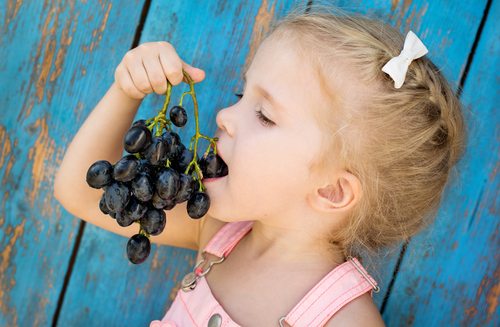
2. Bones
A chicken-loving feline will leap for joy at the sight of a chicken bone. But, despite the fact that birds are natural prey for cats, you shouldn’t give in and let your cat have one. While they aren’t toxic in any way, they can splinter when eaten and can cause an obstruction or lacerations of your cat's digestive system.

3. Chocolate
Unlike dogs, cats are unlikely to be attracted to chocolate on their own, though some cats will seek it out if they are very hungry or bored. In any case, you shouldn’t encourage them to eat it, even in small quantities. Theobromine, an ingredient in white, milk and dark chocolate, is toxic to cats. Eating it can cause abnormal heart rhythm, tremors, seizures and even death.
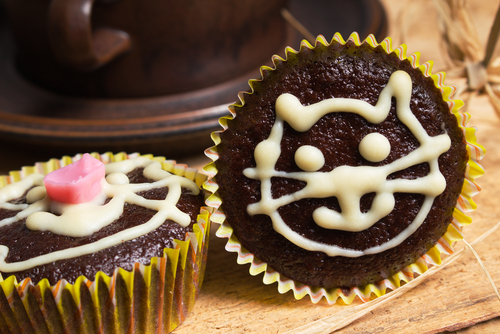
4. Alcohol
Duh, right? But, think about it for a moment. Your cat might think that spiked eggnog, Brandy Alexander or White Russian smells pretty appealing, thanks to the enticing smell of dairy. But, you should take care to ensure your cat isn’t taking a tipple when you’re not looking. Alcohol can be extremely dangerous to cats, who can become significantly intoxicated even from a very small amount. The result? Vomiting, loss of coordination, disorientation and stupor. In severe cases, coma, seizures and death can occur.

5. Onions
Your cat probably won’t seek out an onion to gnaw upon. However, your cat might be attracted to prepared foods that contain onions. So, take caution. Onion in all forms – powdered, raw, cooked, or dehydrated – can break down a cat's red blood cells, causing breathlessness, lethargy, diarrhea and vomiting and ultimately leading to anemia. Even baby foods – which are sometimes fed to pets when they are sick – can contain onions. So, take caution, and read your labels.

Foods to approach with caution
Tuna
Your cat loves it, we know. But, take caution in feeding it to your cat too often. Tuna’s strong taste and smell may spark an addiction of sorts in your cat, resulting in the cat refusing to eat other foods. Since tuna isn’t balanced nutritionally – and can result in deficiencies of vitamin E, calcium, sodium, copper, iron and other essential vitamins – it’s best to avoid feeding it to your cat on the regular. Tuna flavored cat foods are OK, since they also contain other nutritional ingredients.
Milk
First, a word of caution: Nearly every adult cat is lactose intolerant, meaning their digestive system can’t process dairy-based foods, resulting in digestive upset and diarrhea. However, if your cat is inclined toward dairy, giving out small bits of it (cheese, milk or butter) can be beneficial, especially as a vehicle to get a finicky cat to take its medicine. To avoid any and all side effects, opt for low-lactose or lactose-free varieties.
Resources
Do you have additional questions about what your cat should or shouldn’t eat? Consult your local veterinarian. Also, if you think your cat has consumed something that's toxic, call for emergency help at once. You can contact the ASPCA Animal Poison Control Center at (888) 426-4435.
As a passionate champion of the local dining scene, Lori has reimagined the restaurant critic's role into that of a trusted dining concierge, guiding food lovers to delightful culinary discoveries and memorable experiences.
Lori is an avid cook whose accrual of condiments and spices is rivaled only by her cookbook collection. Her passion for the culinary industry was birthed while balancing A&W root beer mugs as a teenage carhop, fed by insatiable curiosity and fueled by the people whose stories entwine with every dish. Lori is the author of two books: the "Wisconsin Field to Fork" cookbook and "Milwaukee Food". Her work has garnered journalism awards from entities including the Milwaukee Press Club. In 2024, Lori was honored with a "Top 20 Women in Hospitality to Watch" award by the Wisconsin Restaurant Association.
When she’s not eating, photographing food, writing or planning for TV and radio spots, you’ll find Lori seeking out adventures with her husband Paul, traveling, cooking, reading, learning, snuggling with her cats and looking for ways to make a difference.

